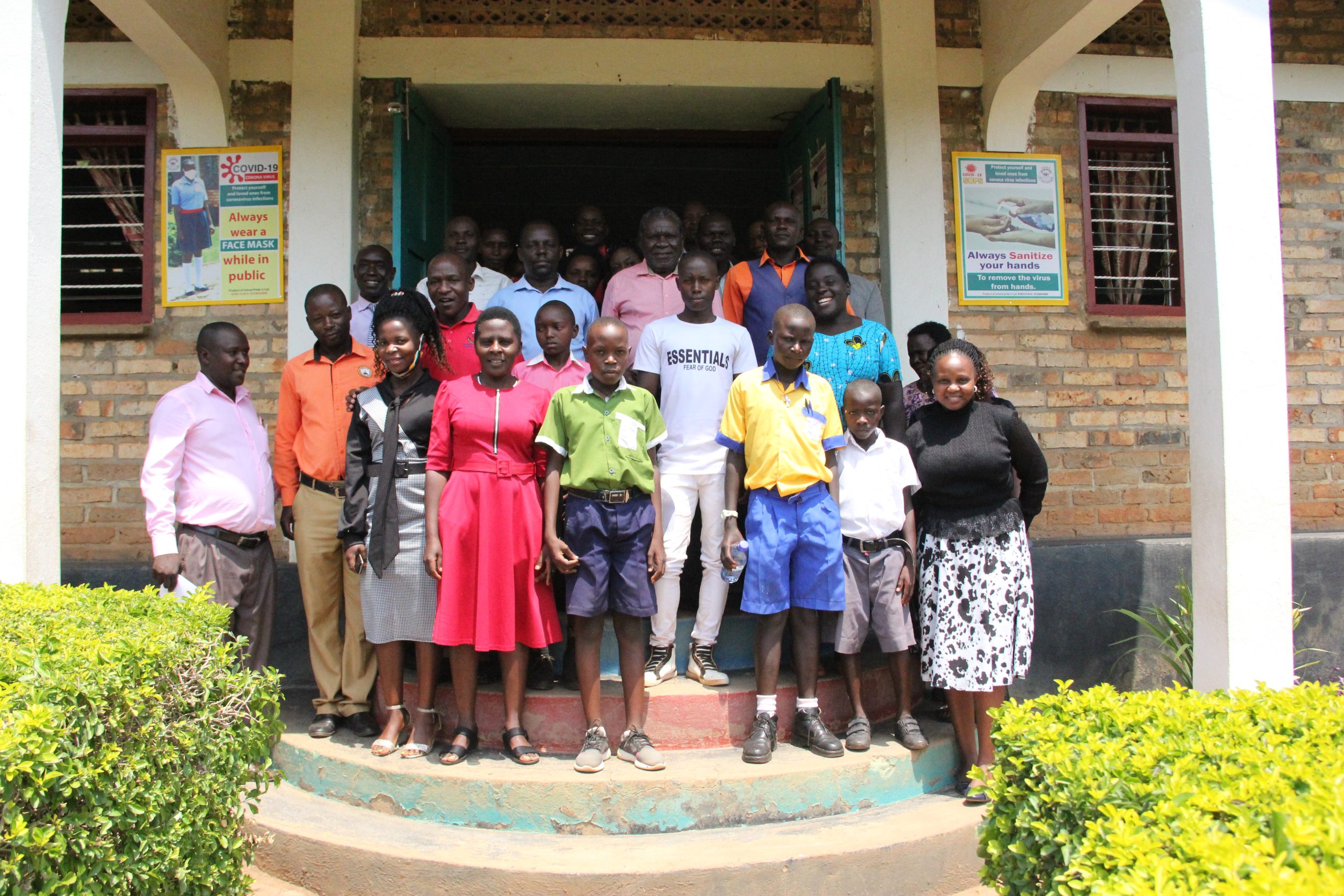Uganda Rural Development and Training Program (URDT) is an indigenous community-based organization that operates in Bunyoro region with consciousness raising, training, education and information sharing as its key strategies.
After witnessing that government education system lacks vision and approaches for schools to operate as transformation centers, URDT came up with a 5-year project known as the Pupil-Managed School Farm Project (PMSFP) in order to establish pupil-managed demonstration gardens for improved nutrition in primary schools and homes in Uganda.
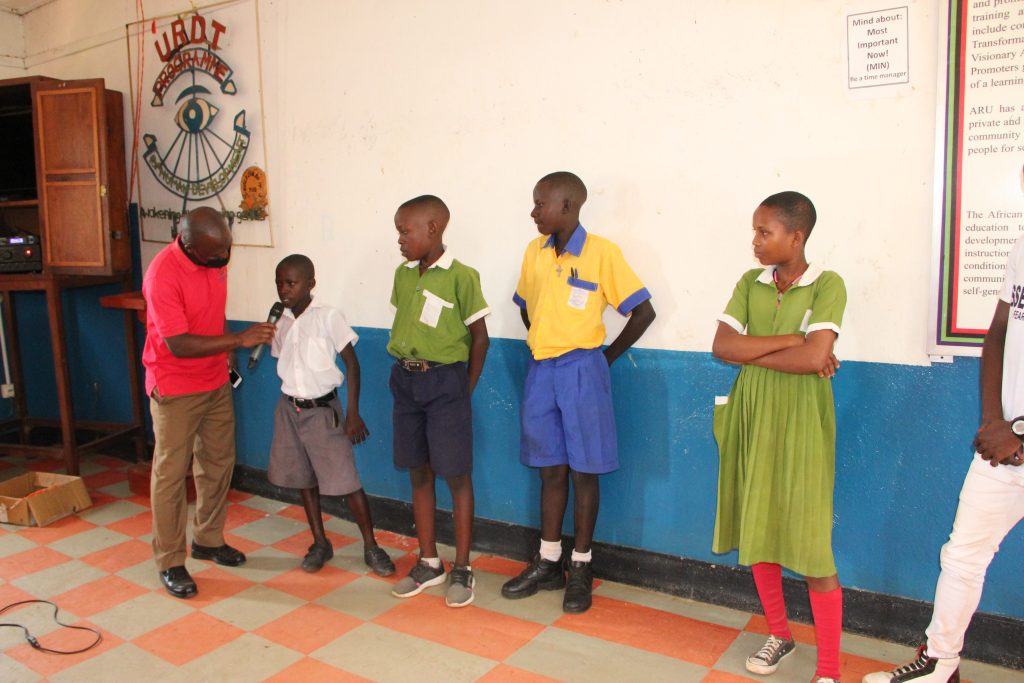
Education as a key to personal and home development is obviously not a topic to argue about. However, the government schools in rural communities are underfunded yet overcrowded hence unsuccessful production of empowered and visionary young people. Moreso, due to the insufficient funding, such schools are unable to provide lunch to pupils yet research shows that pupils that do not have meals at school perform poorly compared to those that are well fed, hence these schools being in a disadvantaged position to learn and tap into their inherent genius, resulting into mushrooming private schools that offer better education, leaving government schools for the poorest of the poor.
As a result, URDT developed a desire to upscale its education methodology in these rural schools as that is where the poorest children are educated, with an aim to support the establishment of pupil-managed school farms in 15 sub-counties in Kibaale district that was to be implemented by the epicenter managers, who are also graduates of URDT’s African Rural University (ARU).

According to Catherine Busobozi the Director Epicenter Strategy at URDT who was also the project coordinator, the project that started in 2015 was initially to be implemented in 15 schools for three years but was later extended to last for 5years in 19 schools due to the COVID-19 effects.
During the validation of the project’s evaluation results that was held at URDT’s center for reflection on 8th January, 2023, Busobozi mentioned that the purpose of the project was to empower pupils in order for them to be able to sustain themselves and their families. “We asked participants to give feedback in order for the successful tracking of the project and it was positive feedback, which motivated us to keep going,” Busobozi said.

Ms. Eva Murora, the coordinator for the evaluation said that the project was carried out at 3 levels; the pupil level, school level and the household, with an objective of seeing at least 600pupils with gardens they personally manage in their homes alongside the school demonstration gardens.
The project’s evaluation researcher, Ms. Dorothy Kasemiire said research was done based on the 3 levels and it was discovered that over half (52%) of the pupils in the 19 participating schools had suffered from some kind of illness like malaria, flu, cough, headache and many others in 2022, which first 3 were associated with poverty.
However, during the validation exercise, it was established that all the participating students had agricultural back home projects, with poultry and piggery being the most profitable ones, and most of the pupils (70%) use the money to buy scholastic materials, others reinvest to boost their projects, 55% pay fees for themselves and 4% supplement their household income. “In spite of the diverse effects of COVID-19, the lockdown was an opportunity for the pupils to expand and work on their projects,” says Ms. Kasemiire.


Kemirembe Claire, a P.7 pupil at Rugashari Public School says she has a cabbage garden at home, from which she hopes to earn after selling the cabbages. She plans on reinvesting her earnings into the garden and also start raring chicken. “I’m so happy that URDT thought about this project because I’m learning a lot from it and earning at the same time,” Kemirembe said during the validation exercise.
Atwebembire Benedicto, a pupil from Kinyamasasa Primary School says he planted bananas and coffee at home because he wanted to start earning and supplement his parents’ income without participating in illegal activities. “My mother helps me to maintain the garden when I’m at school. I want to use the money I will get to start up a piggery or poultry farm because I think they bring in more income than plants,” Atwebembire stated.
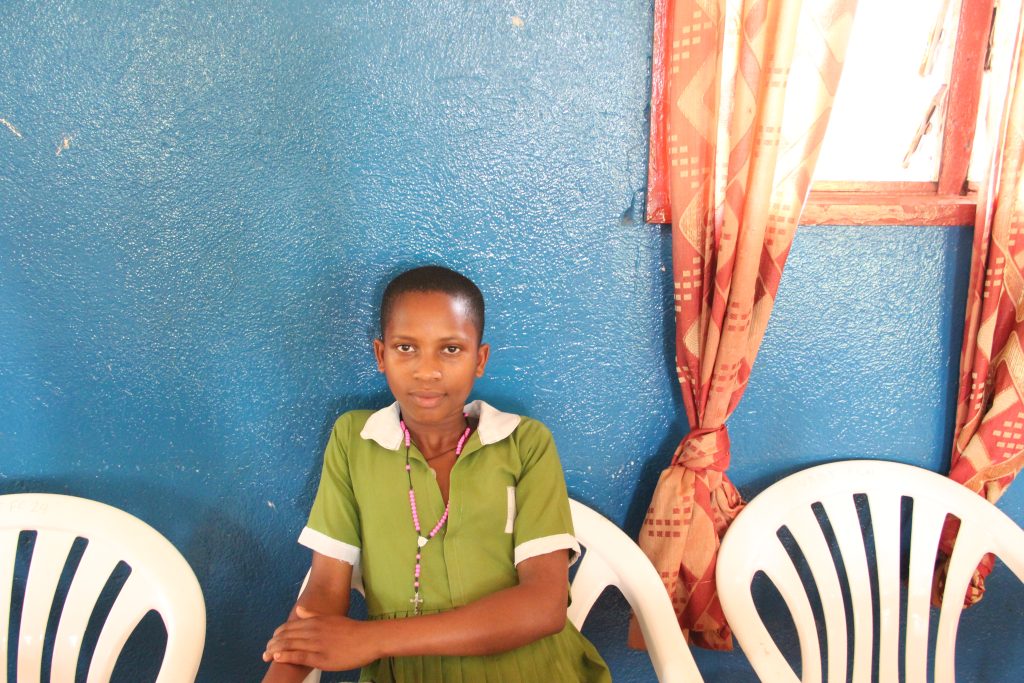


Some of the project’s participating pupils; Kemirembe Claire, Wamaani Wilfred and Atwebembire Benedicto
Mr. Mubiru Christopher, a teacher at Kabamba Primary School appreciated URDT for the project saying it has helped the pupils to develop self-reliance and provide for themselves. He added that the project has not only benefited the pupils but the school staff too. “We have also learnt how to improve on the diets in our families all because of this project,” added Mubiru.
The agriculture teachers at Kabamba Primary School also thanked URDT saying that as a result of the Pupil-Managed School Farm Project, the pupils’ daily attendance and performance in class has proved since they are assured of a good and nutritious lunch at school. He added that he has also acquired some skills like planting vegetables in sacks at home which does not require much land to do.
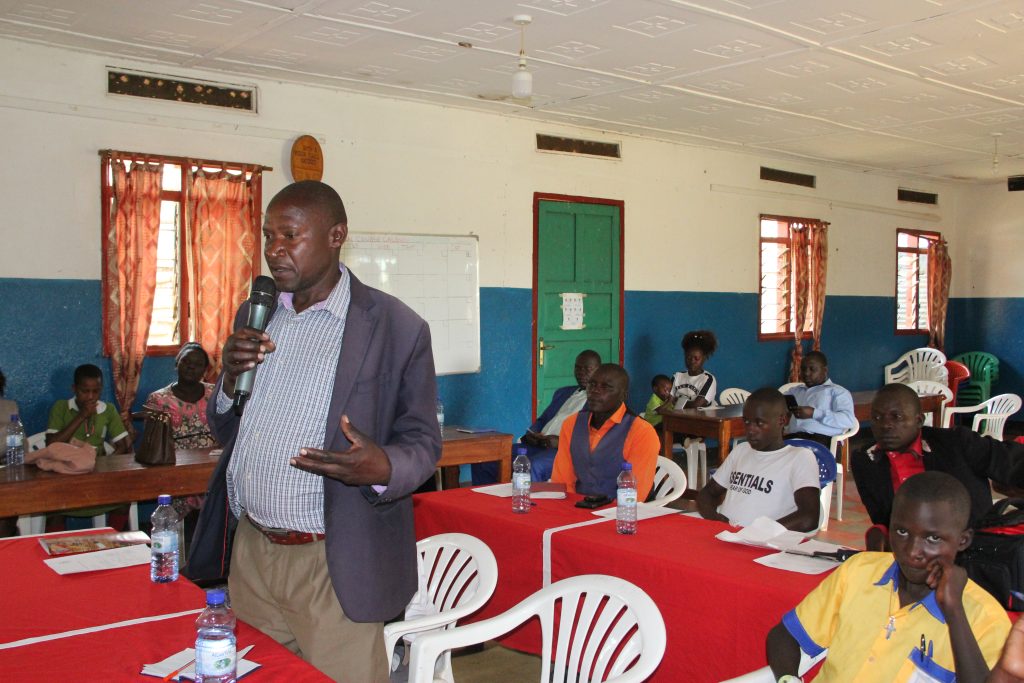
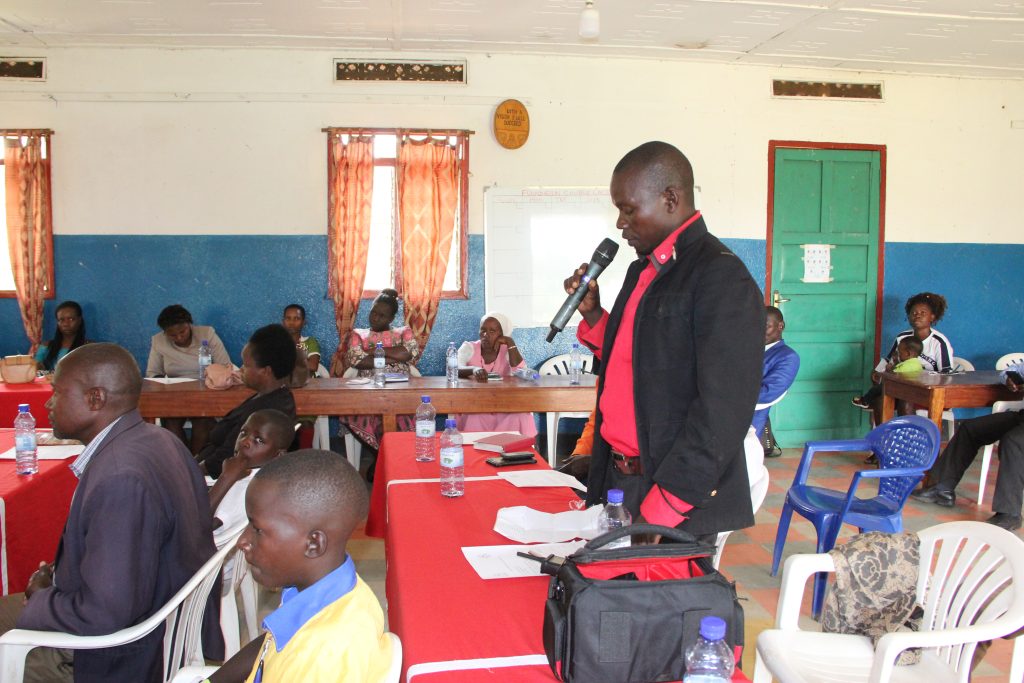
Some of the teachers giving feedback about the Pupil-Managed School Farm Project
While closing the validation exercise, Mr. Robert Katabazi, the Director of Education and Training at URDT said that the project is relevant and is and important component of the pupil engagement plan. He further encouraged parents to support their children’s projects and urged headteachers to incorporate these projects in the school timetable, that is to say, designate time for the pupils to work in the school demonstration gardens
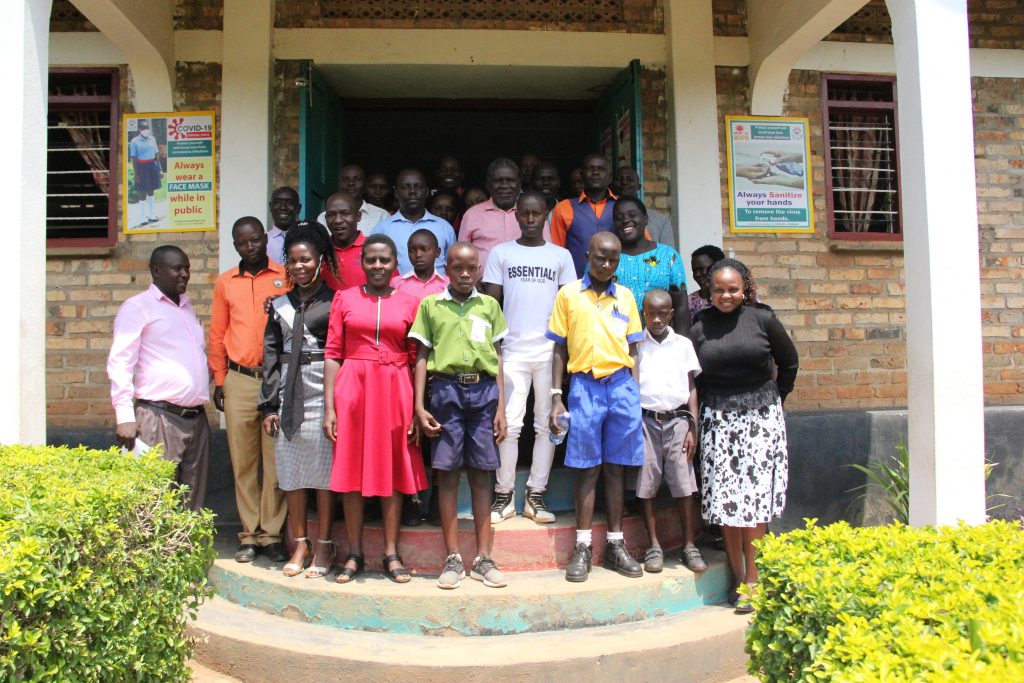
- Celebrating the Life and Legacy of Silvana Franco Veltkamp - January 19, 2024
- Graduates of URDT Institute join the rest of the participants at the EXCO showcase at Helipad, Serena Hotel - November 23, 2023
- District Stake holders Applaud URDT-I for transforming youth into responsible citizens - November 21, 2023

